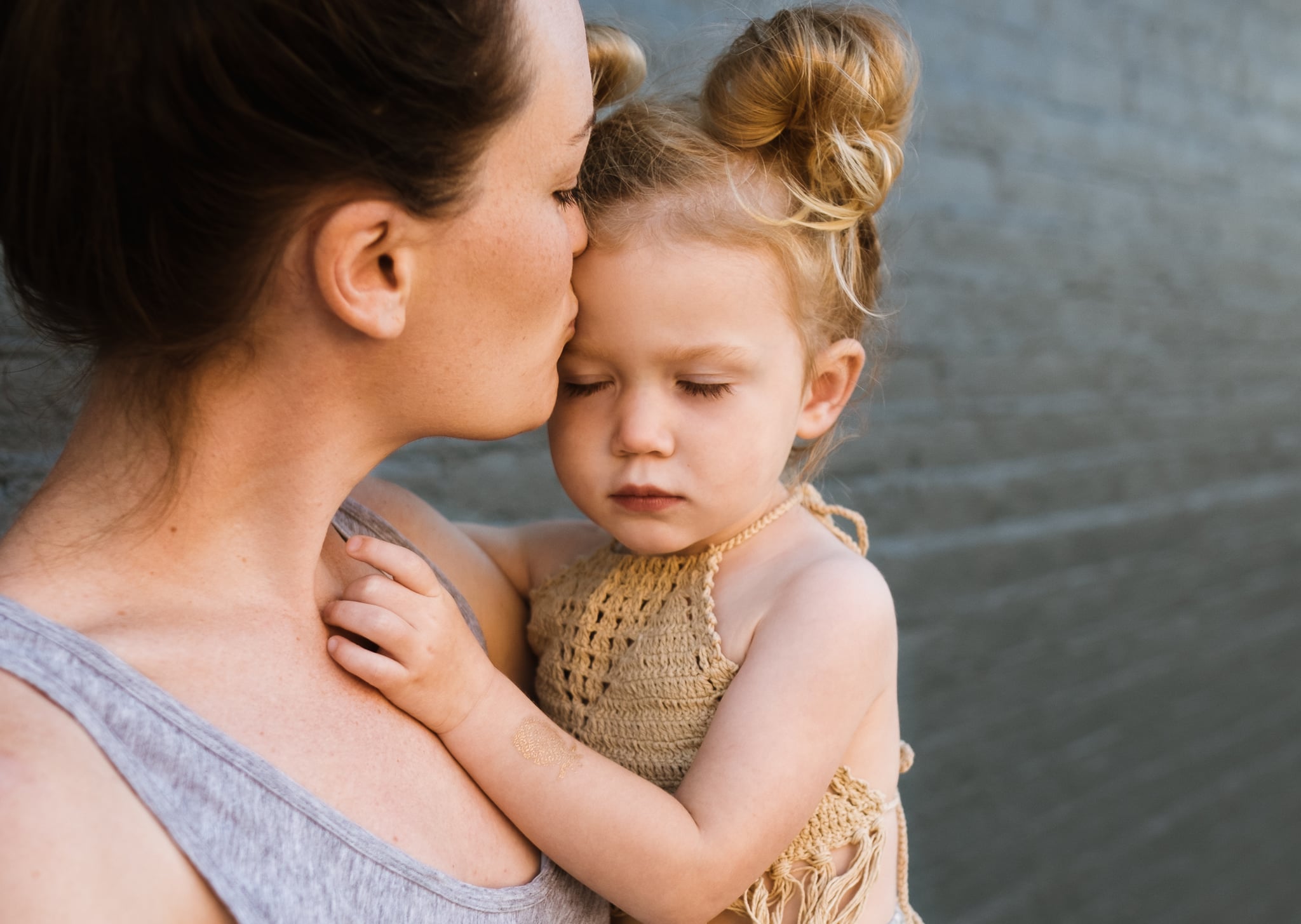
Remember when a sick day meant staying home to nurse a particularly nasty hangover? You'd sleep until noon, order in scrambled eggs with toast, and watch Friends reruns all day — could your life be any different?
You're a parent now. When you're sick, you go to work. You soldier on. Why? Because you have to. No, not because you've suddenly developed some incredible work ethic, but because you need those sick days. You need them because that Cheerio-eating germ magnet who sleeps in a toddler bed in your second bedroom and has her finger constantly up her nose will get sick an alarming number of times and will need to stay home — as will you, most likely. Suddenly sick days have gone from fun company perk to precious gold.
So, how can you tell when it's time to cash in on one of these gems? Do you go into lockdown mode simply because your kid has a runny nose? (Insert second-time mom's snarky laugh here.)
Here are some guidelines for when to keep your kid home from school or day care to make sure you do the right thing, both by your kids and those they spend time with.
- If they have a fever and for 24 hours after it breaks.
You probably already figured that if your kid is running a fever (100.4°F or higher) she's not going to school/camp/day care. This can be frustrating since fevers can span days. Be diligent with the thermometer (the "kiss the forehead" test is really not that accurate). When the fever finally breaks, you might be starting your happy dance. Hold off. Your kid is contagious (not to mention run-down and susceptible to new diseases) for 24 (unmedicated) hours after a fever. Keep them home until you're in the clear. - If they're vomiting and for 24 hours after they stop.
A similar rule to the last — if your kid is vomiting, keep them home. And you'll need to wait 24 hours from the time of the last puke before you send them into school with their saltines and apple juice. However, that old excuse of "it was just one time, it didn't mean anything" might actually work here. The general rule is two occurrences in a 24-hour period spells trouble, but make sure to check with your doctor and the facility where you're bringing your child, since they might think otherwise. If they say you're out, just note the time of day, put on a Disney movie, and hope the vomit brigade doesn't come back to town. - If they have diarrhea.
While we're on the subject of stomach issues, you'll need to keep your kid home if they're jumping to the bathroom to go a runny number two multiple times a day. That is not to say if your kid has one loose stool a day you need to quarantine them. We're talking quality and quantity here. - If they have lice.
This one is a little more facility-specific, as technically the American Academy of Pediatrics [2] says your kid can stay in class with lice, but many day cares/camps/schools will not allow your kid to attend with those little itchy visitors hopping around in his hair. Many facilities even have a no-nits policy and will ask you to eradicate the little buggers and their eggs entirely before sending your kid in. If you've got an aversion to dousing your kid in chemicals, there are natural ways to rid your kids of lice [3]. (Sorry to wipe that last excuse off your list.) Not sure if your kid is harboring an infestation? If your kid is scratching their head, bring them over to a window (daylight makes these things easier to spot) or a bright area and search for bugs, white flecks that don't fly away when you blow, or little red bite marks on the scalp. - If they have pink eye.
Some kids will get irritated eyes from allergies or minor colds, so this one is tricky. Generally, if the white of the eye is only a little bit pink and there's no discharge or only minor clear discharge, you're looking at a histamine reaction, not conjunctivitis. However, if the eye seems quite red and there is yellow or green discharge or puss, you should call in sick and start washing his towels. Pink eye [4] is highly contagious and merits a call to your doctor. - If they're exhibiting suspicious symptom pairings.
A really terrible stomachache [5] that lasts hours paired with a change in behavior/energy level. A cough or painful sore throat paired with wheezing or a headache or upset stomach. A rash paired with blisters that ooze. These suspicious pairs are warning signs that your kid has more than just a general malaise and might be either very contagious or require medical attention. And if at any time you're just not sure, err on the side of caution — this is where your village comes in. Call on a relative/trusted babysitter/best friend with no kids and extra sick days to help you care for your kid if you absolutely can't. You'll find a way to make it up to them later.
